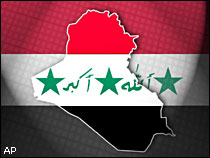
The real winner of the US conquest of Iraq has been Iran and the movement to expand Shiite influence throughout the Middle East. This wasn't what America intended and it certainly isn't what the White House wanted but it is what their illegal war brought to the region.
The only place that America can block an alliance of Iran and Iraq is behind the fortifications of the Green Zone in Baghdad, the very place that Washington expected to direct the post-Saddam, secular, pro-American, Iraqi government. That illusion has long evaporated.
If anything, the events of the past three years have carved up American influence in the Gulf region and the entire Middle East for that matter. Before the invasion, the US Muslim allies were uniformly Sunni - Egypt, Saudi Arabia, Kuwait, Jordan. The occupation of Iraq, however, brought America into an uneasy pact with a Shiite-dominated government and its army which is also, reportedly, 80% Shia.
Throughout the occupation Iran has been a major irritant to US standing in the Middle East. It's president, Mahmoud Ahmadinejad, seemingly couldn't pass up any opportunity to provoke the Bush administration from calling for the annihilation of Israel to pursuing advanced nuclear technology to meddling in Iraq, Lebanon and Palestine.
Washington has tried, in vain, to effectively isolate Iran and to crush it with UN sanctions. The last thing the Bush administration wants is formalized co-operation between Iraq and Iran but that's just what has been happening. The LA Times reports that Iraq is edging closer to Iran and distancing itself from Washington:
"The Iraqi government is moving to solidify relations with Iran, even as the United States turns up the rhetorical heat and bolsters its military forces to confront Tehran's influence in Iraq.
"Iraq's foreign minister, responding to a U.S. raid on an Iranian office in Irbil in northern Iraq last week, said Monday that the government intended to transform similar Iranian agencies into consulates. The minister, Hoshyar Zebari, also said the government planned to negotiate more border entry points with Iran.
"The U.S. military is still holding five Iranians detained in Thursday's raid. Army Gen. George W. Casey Jr., the commander of U.S. forces in Iraq, said records seized in the raid and statements made by the detainees showed that at least some of them worked for Iran's intelligence service.
"Iraqis, who have echoed Tehran's calls for the U.S. to release the five men, say the three-way standoff that has ensued reveals more about American meddling in Iraqi affairs than about Iranian influence.
"'We, as Iraqis, have our own interest,' Zebari said in an interview with The Times. 'We are bound by geographic destiny to live with' Iran, adding that the Iraqi government wanted 'to engage them constructively.'"
Iran remains Iraq's main trading partner, both in the Shia south and in the Kurdish north.
No comments:
Post a Comment